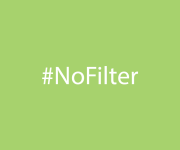While there are rules to marketing, the fact it is based on the action of humans rather than chemicals and electrons means it can never truly be classed as a science.

There is a wonderful new book coming out next month called ‘Eat Your Greens’. Edited by Wiemer Snijders and published by the Account Planning Group it includes a host of thinkers talking about fact-based approaches in our profession and the distinct advantages of marketing science.
The book features a broad church of marketing perspectives, including your humble columnist (they aren’t paying me so I feel like I can promote it without compromise) through to some of the true greats of the industry like Ogilvy’s Rory Sutherland, Thinbox’s Tess Alps and author Doc Searls.
The content is excellent and I encourage you to invest, but what really tickled my thinking was the idea Snijders used to promote the book. He has asked each author to explain what marketing science has taught him or her about the business of doing marketing.
The answers are as varied as they are intriguing (see box below). For many, science has made them better at analysis and more cautious about their gut. For others it has stoked deeper realisations about profitability, communications and brands. And for a few really awkward fuckers like Bob Hoffman and your humble columnist it has inspired annoyingly tautological answers that refute more than they reinforce the whole premise of a more scientific approach to marketing.
I don’t want to appear completely heretical. I am a huge fan of the empiricism and rigour that we have inherited from the small group of “evidence-based” theorists who emerged in the past decade to prowl the stages of marketing conferences around the world. Their slides weren’t very cool and they lacked a trademark outfit or funky haircut, but they had their impact on marketing nonetheless.
Younger and more naïve marketers might wonder how it is even possible to be a theorist without first amassing evidence to support your thinking. Surely all theory is based on evidence?
Being critical, empirical and generally more suspicious is a very long way from slipping on white coats and declaring marketing to be a science.
Those of you who lived through the last 15 years of marketing know that all it takes to be a “thought leader” in marketing is PowerPoint, an ego the size of a small planet and the craven desire to fill a niche with random buzzwords. The ramshackle army of buffoons who anointed themselves as ‘Millennial Experts’, ‘Brand Whisperers’, ‘Growth Hackers’, ‘Storytellers’ and ‘Bitcoin Gurus’ have taken their toll.
Not that there is anything wrong with a bit of stage craft and personal positioning. But the unending desire to say something new and ear-worthy, combined with an almost total lack of knowledge or respect for the discipline of marketing, produce enormously specious thinking.
The evidence-based thinkers featured in Eat Your Greens have, to some degree, offered respite. These thinkers came along with data, replication and science to puncture many of the helium balloons of horseshit being inflated across the conference stages of the marketing world. They questioned brand love, for example, and found a more realistic, polygamous but still useful concept. They challenged the idea of differentiation and the absurdity of much of the overcooked, incredibly self-aggrandising brand positioning.
In general, evidence-based thinking reminded marketers that brands were not such a big deal after all for consumers. And that recognition of their diminutive scale led to some very big ideas.
Following the rules
But being critical, empirical and generally more suspicious is a very long way from slipping on white coats and declaring marketing to be a science. If horoscopes are midnight on the scientific clock and particle physics is high noon, it’s still only about four in the morning in marketing land. We have a few general principles, but it ain’t Watson and Crick.
Of course, I can see the attraction of rules and formulae and being able to say something is correct or not. I just don’t think we will ever get there. And the reason we won’t get there is because there is no “there” to get to.
A simplistic, undergraduate view of science looks across at biology or chemistry and suggests there should be immutable laws and principles that marketers gradually uncover in a successful quest to reveal the laws of marketing. But that misses the point that marketing is very clearly a social science in which rocks and chemicals and electrons are replaced by that most annoying of focal topic – humans.
And not even humans engaged in high order, important stuff. Humans who eat burgers, watch TV, engage on social media and then get pissed and fall asleep in their underwear with the TV on. Hardly the stuff of cold fusion or particle physics.
Humans are reflexive: they learn and change. We are contextual creatures who alter our behaviour based on our environment. Worst of all, we make meaning and use that meaning to create culture that then sits across natural phenomena and intermediates its impact. As countless scholars in the fields of other social sciences like history, sociology and the rest have already concluded, the social sciences, of which marketing is clearly a part, are not half as hard or law-like as we might wish them to be.
In fact, there are strong philosophical voices that suggest even the natural sciences are much softer and human than many would have you believe. The physicist Max Planck once observed that scientific truth does not “triumph by convincing its opponents and making them see the light” but rather “because its opponent eventually dies, and a new generation grows up that is familiar with it”. To be more blunt, science isn’t actually very scientific at the best of times.
Ian Leslie’s brilliant account of how 20th century nutritional science was dominated by American researchers who convinced the world that eating saturated fat contributed to heart disease and ultimately death, while sugar was nothing to worry about is a perfect example of how the hard sciences are just as political, illogical and personal as most other pursuits. Rather than cold hard logic, scientific consensus depends on interpretation, affiliation and ideology. Despite what “scientific marketers” would have you believe there is more bias, emotion and tribalism going on in marketing science than at a teenage disco.
Marketing is very clearly a social science in which rocks and chemicals and electrons are replaced by that most annoying of focal topic – humans.
My contribution to the collection of quotes on marketing science questions how much marketing is involved in science and reflects this belief.
This is not the first time we marketers have sought a more scientific mantle. In fact, for as long as we have had marketing thinking, there have been marketers attempting to add rigour and scientific structure. The fact they do not get very far tells us much about the merits of the search for marketing science.
When I was a young scholar in America I lived through the end of the “paradigm wars” that erupted between those that claimed a scientific approach to marketing and those that pointed out that that there were many ways to do science. I watched Morris Holbrook battle Shelby Hunt and was electrified by the debate between relativism and positivism.
But my favourite paper of that period, one that every marketer would do well to read now, some 35 years later, was by marketing professors Jerry Olson and J Paul Peter. I knew Olson, he was a superb thinker and not without a sardonic world-weary sense of humour. Their paper published in the Journal of Marketing in 1983 has the single greatest title in the history of marketing publications. Rather than ask whether marketing is science, it asked instead ‘Is science marketing?’.
Marketers can certainly take much from the pursuit of science. But don’t forget just how useful the concepts of marketing are in promoting and selling your scientific theories too.
Here are the contributors’ responses to the sentence ‘marketing sciences has taught me…’
Humility.
– Rory Sutherland
Changing my own mind can be immensely satisfying.
– Byron Sharp
To argue.
– Sue Unerman
Why facts alone won’t win an argument (even though they should)
– Tess Alps
How little science there is in marketing.
– Bob Hoffman
How much marketing is involved in science.
– Mark Ritson
Humans.
– Mark Earls
How uncertain the science in marketing is. We think we can explain rationally and objectively more than we can. When we further our knowledge into it, we will know more clearly what we won’t ever know.
– Tom Goodwin
The art of scepticism.
– Kate Richardson
That most marketers prefer platitudes over pragmatism.
– Ryan Wallman
It’s easier to win an argument when you have an evidence base.
– Kate Waters
That if you want to improve any aspect of marketing you need to understand how consumers think.
– Phil Graves
To not overthink things and build on what does not change.
– Shann Biglione
A number of different ways to sell the shit out of great creative work!
– Julian Cole
Nothing. I also doubt that any “science” with a Wikipedia entry as short as marketing science’s has much to teach that isn’t about a wannabe field bullshitting itself.
– Doc Searls
In the kingdom of the blind the one-eyed man is king.
– Adam Ferrier
That binary thinking rarely serves me well.
– Rosie Yakob
To maintain an open mind, but keep the bullshit detector running.
– Eaon Pritchard
The importance of defining terms – starting with what we mean by ‘science’.
– Helen Edwards
More in five years than my previous 25 years of marketing practice.
– Phil Barden
Relying on common sense will get you in trouble.
– Robert van Ossenbruggen
Many companies are still leaving a lot of money on the table.
– Wiemer Snijders
To be sceptical but never cynical.
– Patricia McDonald
To question the wisdom of inherited wisdom.
– Tom Fishburne
That what is interesting is not always what is important… and vice versa.
– Brandon Towl
To be cautious of intuition.
– Amy Wilson
That real impact is not just numbers, it is creating actual change – whether that is at local, national or global level – for real humans, not just for brands.
– Anjali Ramachandran
To be experimental.
– Faris Yakob
To get back to basics and not get distracted by the new fangled nonsense.
– Mark Barden
To start with the evidence and look for findings that replicate.
– Gareth Price
That if want to be really good at something, it helps to understand the rules of the game that you are playing. But more than that, that understanding those rules actually allows you to be creative and to enrich things, rather than being limited.
– Jerry Daykin
That the numbers aren’t the end of the story but the start.
– Becky McOwen-Banks
Fuente: https://www.marketingweek.com


 Versión PDF
Versión PDF







